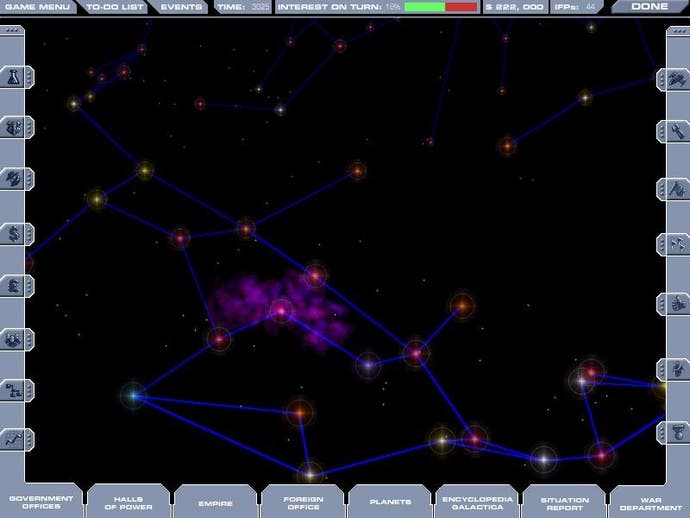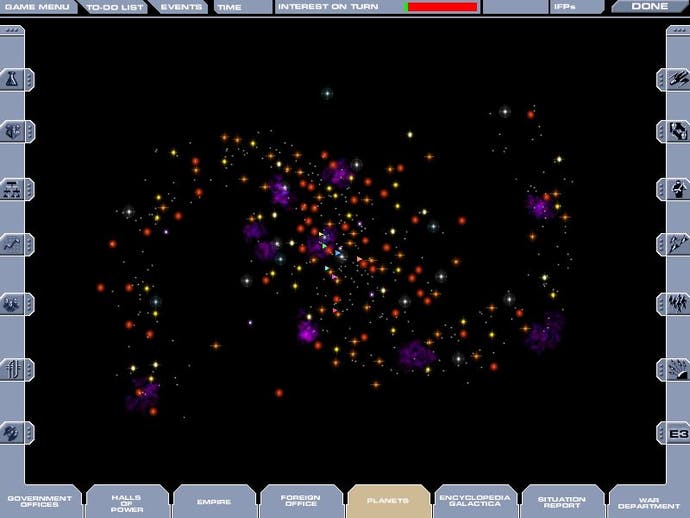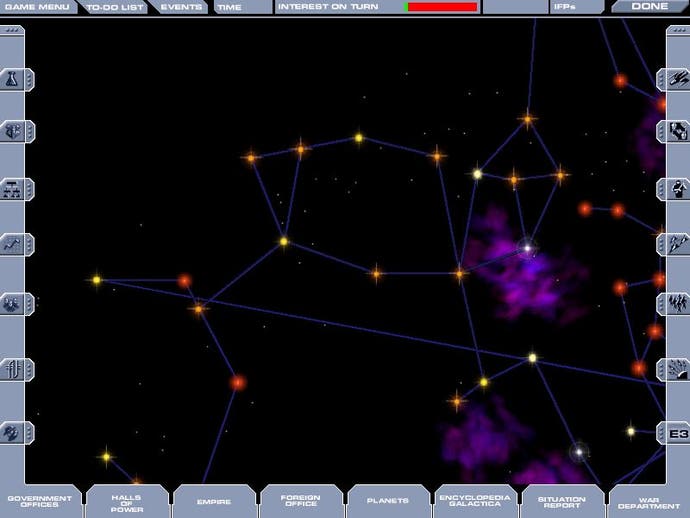Master of Orion 3
Rob tucks into Quicksilver's empire-building spacefest
Management simulations are, to put it mildly, a very unusual corner of the gaming universe. From Championship Manager and Sim City to the likes of Master of Orion or Galactic Civilisations, they all share common traits - like a heavy reliance on statistics, an extremely in-depth gameplay model, and the derision of those who don't "get" the genre as being nothing more than a glorified spreadsheet.
Master of Orion is one of the original flag bearers for this genre, an epic management title which puts you in charge of an advanced race on the galactic stage and lets you handle everything from exploration and colonisation through to the economy and, of course, the military. This latest iteration of the series has been a very, very long time coming, having slipped for well over a year before finally arriving on shelves - but fans of the series may find themselves asking whether it was worth the wait.

Rule with an iron spreadsheet
Two things are immediately apparent when you first start playing MOO3 - firstly, that it's incredibly detailed, and secondly, that it's incredibly ugly. The game boasts screen after screen of in-depth information about the state of your empire, with literally hundreds of statistics ranging from economic and demographic information to the state of your research efforts, geological surveys of planets and your relationships with other races in the game. It's an impressive and indeed overwhelming amount of information to digest.
Unfortunately, it's not exactly presented in a particularly attractive manner. While the information screens themselves are fairly functional, any parts of the game that try to represent anything graphically are downright hideous. The back of the box claims that the space battles in the game are a thing of beauty; well, eye of the beholder or not, we're pretty sure that nobody is going to consider the pixellated mess of voxels and crappy ship designs "beautiful" in any way. The same goes for the main game map, which illustrates the extent of your empire and the surrounding star systems in low-resolution, messy 3D. To top it all off, the game is stuck in 800x600 - a travesty in a modern title that tries to pack so much information on screen, and anyone with a monitor 19" or larger will certainly object to the fact that the individual on-screen pixels are larger than the human head.

Alphabet Soup and Backbench Rebellions
Graphics, of course, aren't the really important thing about a game like Master of Orion 3, so with that criticism out of the way, what about the game itself? As previously mentioned, there's a vast amount of information on offer - so much so that at first it seems impossible to absorb or act upon that amount of detail. You quickly realise, however, that the game doesn't actually expect you to keep track of all that information - quite the opposite, in fact.
Master of Orion 3, you see, has introduced a number of fascinating new concepts in management sim design, the main one being that you don't actually have to play the game at all. Each aspect of your empire has an appointed viceroy who is perfectly capable of running affairs without your intervention - and while that would be a great idea if it just meant that you could delegate dull micro-management to these chaps, it's a bit more of a problem when they continually contradict or countermand your orders and intentions.
In fact, as soon as your empire grows to any decent size, you'll find that conflict with other races isn't the biggest problem you face - it's constant, frustrating conflict with your own viceroys that will take up most of your time, and each turn of the game can descend into a tedious matter of going around each planet and resetting the build queues or fleet orders which your viceroys have changed without your consent.

Lies, damned lies and statistics
If only your enemies displayed the same kind of intelligence, the game might be a lot more interesting - but in fact, the enemy AI in MOO3 is terrible, far worse than in the previous game in the series. Even on the hardest difficulty level, enemies seem incapable of mounting any kind of sensible offensive against you, resorting instead to sending tiny fleets crashing against your defences and making some of the most appalling and wasteful strategic decisions we've ever seen an enemy AI in a videogame make.
We really can't fathom why Master of Orion 3 took so long to finish - there's an incredible amount of detail in there, but behind the vast lists of figures and statistics, the game itself is actually very simple and quite painfully flawed. The effort that went into the creation of such a detailed empire model, and even into writing the hugely complex back story for the game, is to be applauded; but in the light of the piss-poor gameplay, it's hard not to wish that Quicksilver had spent a little more time on the game and a little less time on the window dressing.
It's a terrible shame to see the Master of Orion series take such a huge step backwards in terms of playability. We can only hope that those longing for a decent space empire simulation won't be disappointed by the other big hope for the genre, namely Stardock's Galactic Civilisations, which looks very promising indeed and could make up for the disappointment that is Master of Orion 3.
Master of Orion 3 screenshots (PC)

